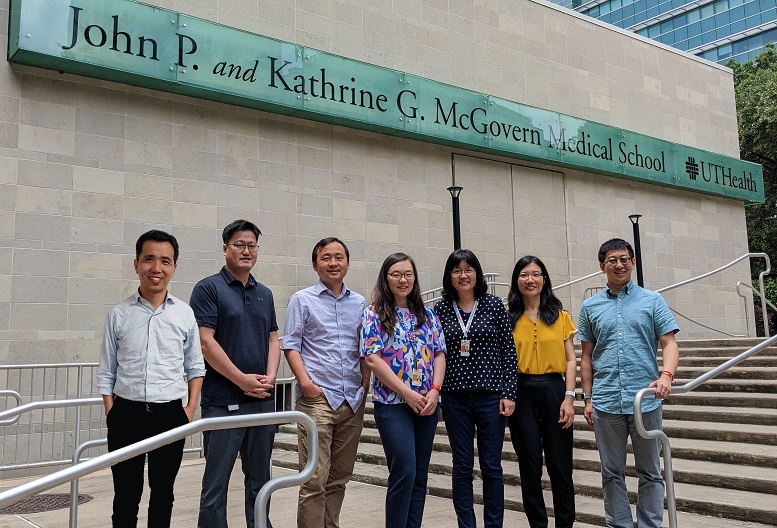2023 CPM Seed Grant Winners
We would like to congratulate the award recipients of this year’s Multi-PI Collaborative Research Pilot Grants sponsored by the Center for Perioperative Medicine (CPM). The goals of this mechanism are to encourage new research collaborations within the Center and to provide support to budding collaborative research projects for clinical and basic/translational research faculty at UTHealth Houston. Ultimately this pilot award is to encourage multi-PI submission of grant applications to larger funding agencies.
Each application is carefully reviewed by an external board of experts in biomedical research.

2023 CPM Multi-PI Collaborative Research Pilot Grant Recipients:
- Aaron An, Xiaoyi Yuan, and Tingting Mills:
Obesity increases the vulnerability of lung epithelial cells to SARS-CoV-2 infection
This project will compare the outcomes of murine SARS-CoV-2 infection in lean and diet-induced obese mice with the goal of gaining mechanistic insights into our understanding of how obesity increases COVID-19 severity and mortality.
- Cynthia Ju, Qingchun Tong, and Aaron An:
COX-2 in eosinophils controls the brown adipose tissue function
This study will highlight the novel mechanisms of brown adipose tissue (BAT) activation and have translational merits that modulation of COX-2 in eosinophils holds a potential to ameliorate obesity via improving BAT function.
- Wenbo Li and Xiaoyi Yuan:
Epigenetic memory and post-acute sequelae of COVID-19 in lung
The aim of this project is to establish a mouse model for lung pathology in the post-acute sequelae of COVID-19 (PASC) phase and to characterize the epigenetic landscapes that may underlie the lung pathology in the post-acute phase.
- TJ Lee and Cynthia Ju:
Targeted reprogramming of inflammatory liver disease by engineered extracellular vesicle
The team will construct a new trypsinized extracellular vesicle (tEV) decorated with hepatocyte-specific or macrophage-specific RNA aptamers and filled with anti-miR-155, and aim to reprogram inflammatory liver tissues by suppressing miR-155 in both hepatocytes and macrophages.